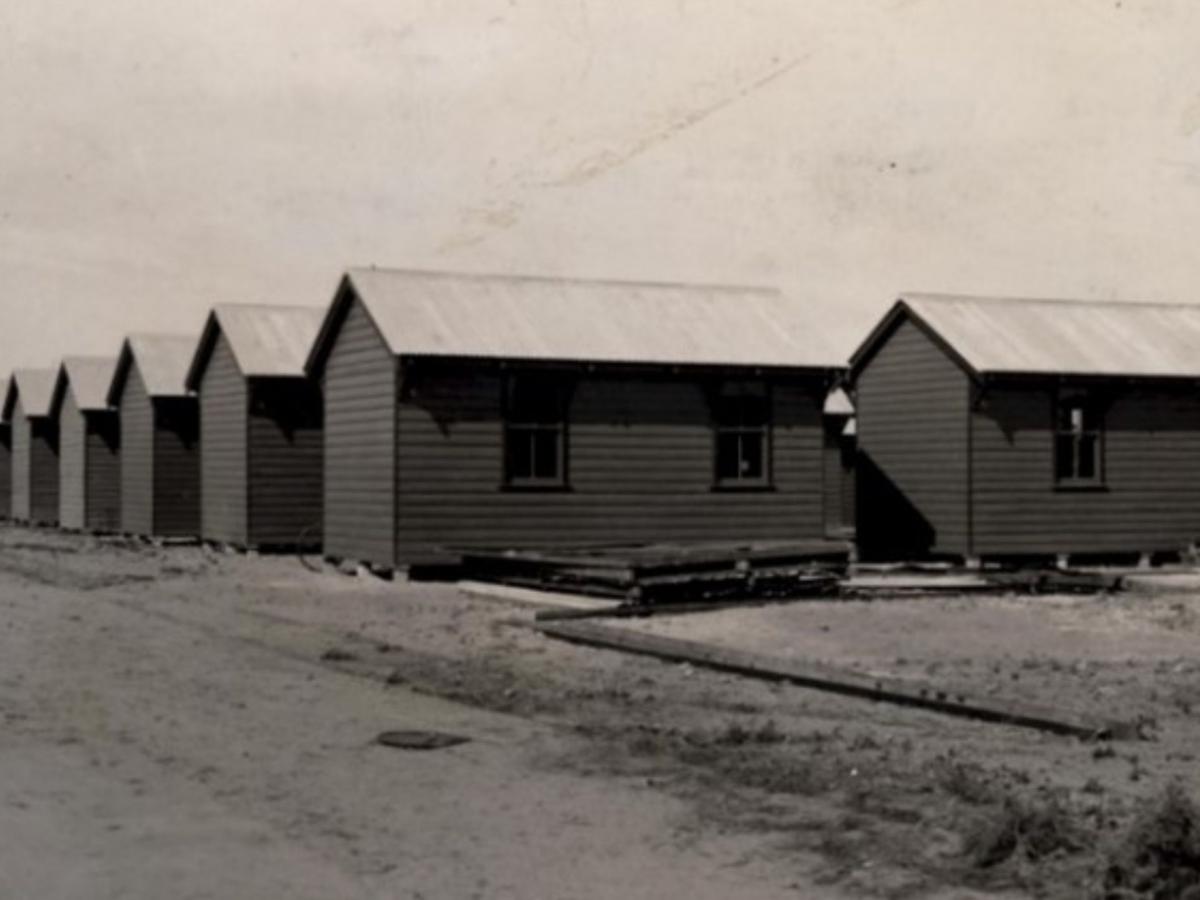
NAA: B330, 8352/1 Port Augusta Railway Workers Huts
Personal accounts of migrants' stories from their time in South Australian work camps could help researchers begin to construct a much fuller account of this important, yet overlooked, period of Australian history.
As part of the SA History Festival, the public is invited to join University of Adelaide researchers and the National Archives of Australia (SA) on Tuesday, 30 May at the State Library of South Australia for a talk on migrant work camp history. The audience will be encouraged to share family memories, keepsakes, and photos. This free interactive event will feature experts from the University of Adelaide's Hostel Stories research group speaking about their investigations into post-World War II migrant camps.
"World War II devastated much of Europe and tens of thousands of hopeful migrants arrived in South Australia searching for a better life," said Professor Rachel Ankeny who leads the University of Adelaide's Hostel Stories research group.
"Lured by the promise of safety and employment, many of these men and women found themselves living in overcrowded work camps - far from the Australian dream that many had hoped for."
Coming first from a diverse range of often war-ravaged countries and then from other European locations affected by poor economic conditions after the war and speaking many different languages, migrants made do living in tents, cabins, or hastily converted military barracks. These work camps were provided by private companies looking for labourers for industries such as mining, forestry, and railways, or by individual employers running farms, cheesemaking facilities, or other enterprises.
"World War II devastated much of Europe and tens of thousands of hopeful migrants arrived in South Australia searching for a better life."Professor Rachel Ankeny, leader of the University of Adelaide's Hostel Stories research group
Many people found communities into which they were welcomed and quickly settled, while others were moved frequently from camp to camp and job to job, often without their families, and experienced considerable isolation and loneliness.
"Numerous employer-run work camps were in use in South Australia between 1947 and 1967 including in Adelaide itself, yet much of this history has been forgotten, despite these migrants being essential to the growth of industry and infrastructure in Australia's post-war years," said Dr Karen Agutter, lead researcher on the project.
Speakers:
Dr Karen Agutter is an historian with a focus on the history of migration, particularly issues of migrant identity and host society reception, in Australia, Canada, and Great Britain. She obtained her first PhD at Flinders University in 2008 and received a second PhD on the Hostel Stories Project at the University of Adelaide, where she continues to research and publish on migration history as an honorary affiliate in History. Karen is particularly interested in the interactions between new arrivals and the wider Australian society through a variety of mechanisms such as education, health, work, and voluntary organisations, as well as forgotten migrants such as single teenagers and women, as well as those who passed through work camps.
Professor Rachel Ankeny is an interdisciplinary scholar with several lines of research including on migration history. She is particularly interested in food habits and medical care among migrants who went through the hostels in South Australia and elsewhere. She is the team leader for the Hostel Stories project at the University, the chief investigator on the Australian Research Council Linkage Project grant that was associated with the project, and supervisor of the postgraduate students and interns who were involved in the project.
When: Tuesday 30 May 2023. 6:00pm.
Where: Hetzel Lecture Theatre, State Library of South Australia, North Terrace, Adelaide SA 5000.
Free tickets available: Click to reserve your ticket via Eventbrite.






